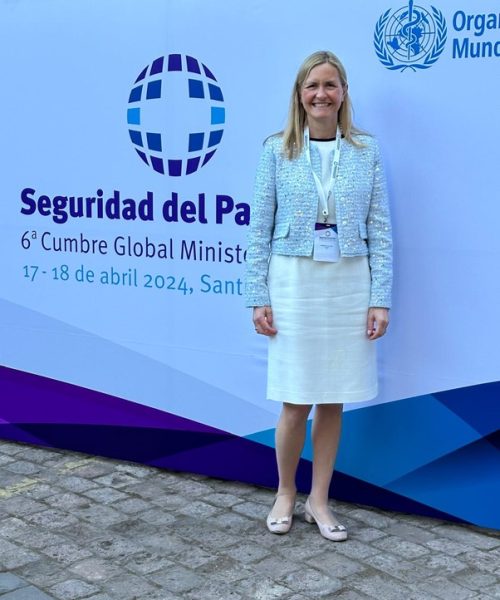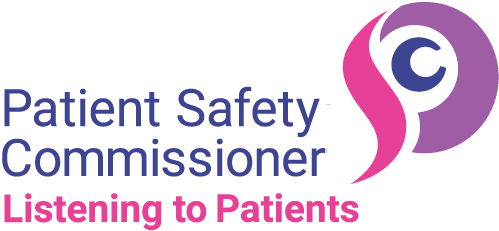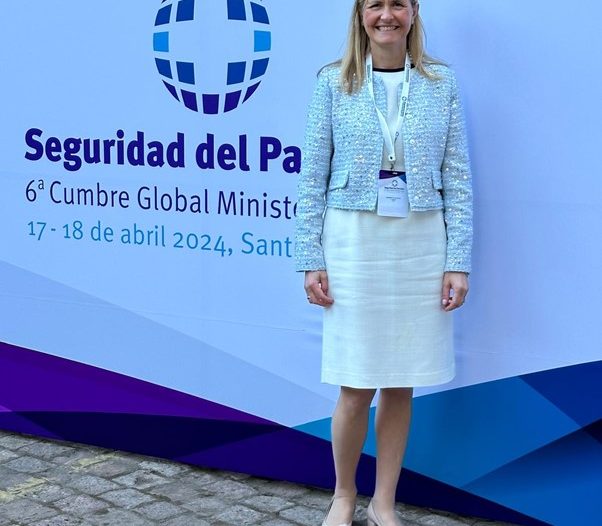
The 6th Global Ministerial Health Summit in Santiago, Chile, was a great opportunity to hear from global partners about progress in patient safety and innovations to embed patient voice.
I was very pleased to be able to present on the Patient Safety Commissioner role on the Ministerial Day at which health ministers from around the world voiced their commitment to patient safety. My role is the first of its kind in the world so there was significant interest in it, particularly from patient groups in other countries who do not have a statutory function to amplify patients’ voices.
England was also represented by the National Patient Safety Director Aidan Fowler and by Rosie Benneyworth, interim CEO of HSSIB. There was significant alignment in the thinking of other countries who have made progress on the WHO Global Patient Safety Action Plan.
Dr Rudi Eggers, the WHO’s director of integrated health services, launched the WHO Patient Safety Charter which sets the aspiration for patient safety rights across the world, with the long-term aim of access to safe healthcare as a human right. I was pleased to be part of its production in Geneva last year.
Global health leader Sir Liam Donaldson set out the power of health ministers to:
- Create industry-wide standards for patient safety
- Unleash the power of design
- Demonstrate that a source of harm can be eradicated worldwide
- Bring patient safety out of its silo
- Build solidarity with victims of harm.
Delegates also heard from patient activists about their work. Ikuko Toyoda from Japan gave a heartbreaking account of her family’s situation and how she worked with patients and families to help broker better relationships with healthcare providers.
Sue Sheridan from Patients for Patient Safety US spoke about the value of working in partnership with patients. ‘Embrace the wisdom of your patient community and never give up on patient safety,’ she said. Sandra Cortez Gomes, a nurse from Colombia, described a scheme she set up after patients and families said they didn’t have the right language or that doctors wouldn’t understand them. The scheme enables them to practise talking about their concerns before they meet hospital administrators.
Reflecting on the Summit, I believe we need the political will to see patients as partners. But it is also unrealistic to expect patients to be able to engage in the health system as it is currently set up. We need to co-design and co-produce our policies and processes, structures and systems so they make sense to patients and the public. We need epistemic justice so there are no barriers of status, knowledge or language. In England, we have encountered barriers to engaging patients in all these areas and it is clear this is a worldwide phenomenon.
With the political will, we can make this happen. But it relies on those at the center giving up power and autonomy and sharing it with citizens, patients and families. When we do this, we will be able to work proactively and direct resources into building relationships, designing safe systems, saving lives, resources and money, and keeping people safe.

